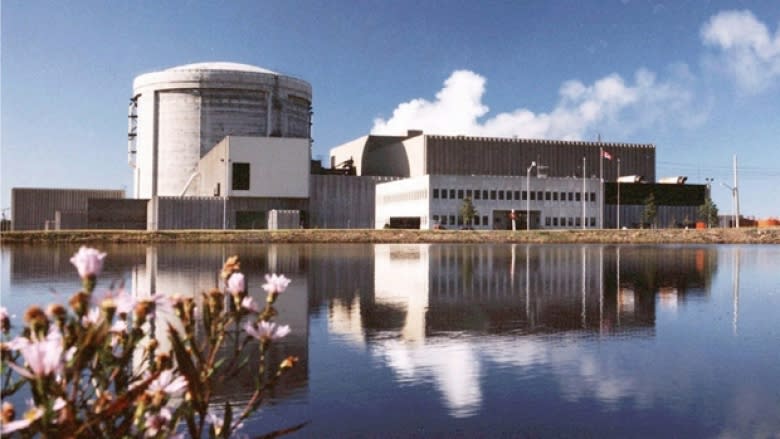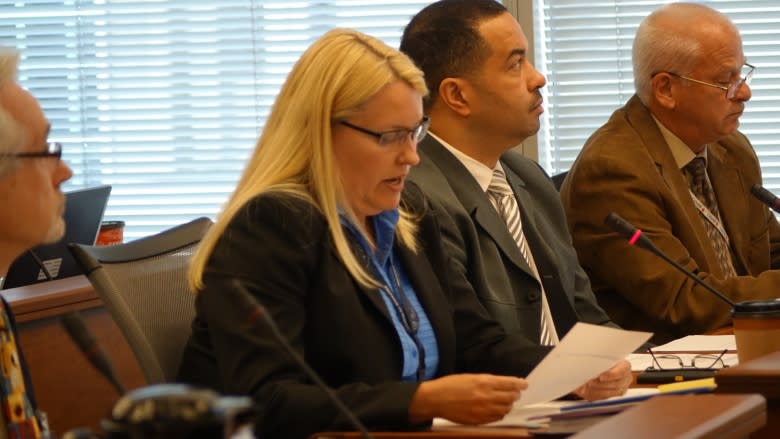Canadian nuclear plant workers could face random drug and alcohol testing
The Canadian Nuclear Safety Commission (CNSC) could be one step closer to becoming the first regulator in the country to make random drug and alcohol testing mandatory for workers with high-risk jobs.
It's proposing that a small percentage of workers with a direct impact on public safety at nuclear plants would have to hand over samples.
The Canadian Nuclear Worker's Council (CNWC), the organization which represents unionised workers in the nuclear industry, opposes the idea, saying it violates worker privacy and human rights.
"We keep pushing back," said Bob Walker, the council's executive board chair. "To require somebody to give bodily fluids is very intrusive.
"The state can't do that without a compelling reason and there is no compelling reason. There's no reason at all."
The CNSC held a public meeting Thursday to debate the issue and decide whether to move forward with regulations that have been eight years in the making.
Other countries already randomly testing
International peer reviews found that Canada's nuclear industry was lagging behind other countries and recommended the introduction of random testing.
Countries including the United States, United Kingdom, Finland, Sweden, Romania and Korea all conduct random drug and alcohol tests for nuclear operators, according to the CNSC.
But unions questions why Canada has to follow suit.
"We have a different culture here, what we have here today is very safe," said Walker. "This will not improve safety at all."
David Shier, national director of the CNWC, calls the testing "discriminatory." He says there is already an "exhaustive screening process" in place to make sure workers are fit to work.
It includes workers talking to security officers before and after their shifts, and meeting with a management supervisor before starting work, said Shier. They are trained to see behaviours that indicate if someone shouldn't be working. Shier worries workers could stop taking that process seriously, if random drug and alcohol testing comes into effect.
"It could take away from that peer interaction," he said. "It has an effect that it could deteriorate things."
Striking a balance
The CNSC heard union concerns about human rights during years of consultations and says it made significant changes as a result.
The amount of nuclear workers that would have to undergo random testing "has been considerably reduced," said Lynda Hunter, a human and organizational factors specialist with CNSC.
Instead of making anyone with unescorted access into nuclear plants undergo random testing, only a small group of those workers with the "direct and immediate impact on safety" would have to, said Hunter. Every year, a quarter of the 900 or so workers in Canada with high-risk positions would be tested.
According to CNSC director general Greg Lamarre, the Canadian Human Rights Commission said drug and alcohol "testing is permissible for workers in safety-sensitive positions," as long as workers are aware it's part of their condition to work, and it's non-punitive.
In other words, workers would not be penalized if they test positive, but rather, would be given support programs to get help.
Companies support idea
Companies such as Bruce Power support random drug and alcohol testing, even though it could cost millions of dollars a year to implement.
Frank Saunders, Bruce Power's vice president of nuclear oversight and regulatory affairs, says there is no safety problem now, but this will prove the systems in place work.
"If it adds to public confidence and supports the notion that we're safe and helps people feel more comfortable with it, we would be willing to go there," he said.
According to the CNSC, if passed, the industry would need to come up with an implementation plan detailing roll-out timelines and what would constitute a failed drug test — a process that could take years.
The results of the CNSC decision will be made public at its next meeting in October.





